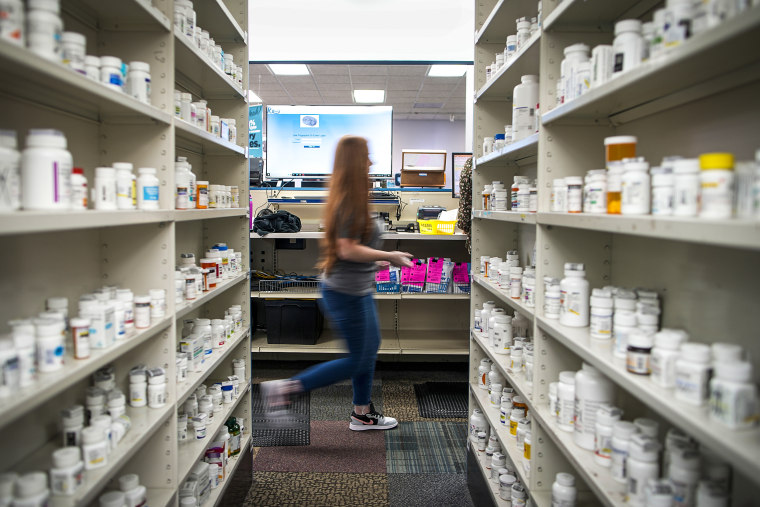A growing number of older adults say they can’t afford their prescription medications, a study published Thursday in JAMA Network Open found.
About 1 in 5 adults ages 65 and up either skipped, delayed, took less medication than was prescribed, or took someone else’s medication last year because of concerns about cost, according to the study.
“That was pretty surprising,” said lead study author Stacie Dusetzina, a health policy professor at Vanderbilt University in Nashville, Tennessee. A study published in the journal Medical Care found that in 2016 about 1 in 7 older adults were not taking their medication as prescribed because of cost.
“So a pretty big jump,” Dusetzina said.
The study’s findings were based on a national survey taken by more than 2,000 older adults from June 2022 through September 2022.
Dusetzina attributed the increase to rising inflation and prescription drug costs, which are notoriously high compared to other countries of similar size and wealth.
The study may not reflect the experience of younger individuals, she said, although other studies have shown they also struggle to pay for certain medications, like insulin.
Sometimes people will keep taking their medication as prescribed despite the cost, but will need to resort to other means — sometimes extreme — to afford the medications, Dusetzina said.
About 30% of the older adults used a copayment card or coupon to afford their medication. A quarter of the respondents asked a physician for a lower-cost medication, and about 17% of them shopped around at pharmacies to find a lower price.
More than 8% of respondents said they went without basic needs — like gas and groceries — to afford their medication, while 4.8% of respondents said they went into debt to get their medication.
The study’s findings are in line with earlier studies as well as what’s seen in the real world, said Dr. Adam Gaffney, a critical care physician at the Cambridge Health Alliance in Massachusetts who advocates for universal health care coverage. He was not involved in the research.
“It’s certainly something that any physician has heard in the clinic that patients sometimes don’t take the medication or didn’t fill them or didn’t start them because of the sticker price,” he said.
The Inflation Reduction Act — signed into law shortly before the study survey concluded — aims to lower the high cost of prescription drugs for older adults, said Tricia Neuman, executive director for the program on Medicare policy at KFF, formerly known as the Kaiser Family Foundation.
On Jan. 1, a provision in the law imposed a $35 monthly out-of-pocket cap on the cost of insulin for older adults on Medicare, causing insulin-makers to quickly follow suit for people on private insurance. But some of the law’s other provisions — like a $2,000 out-of-pocket cap on drug spending and negotiated drug pricing — won’t go into effect for several more years.
“Future polls will tell us the extent to which further action may be needed to drive down drug prices,” said Neuman, who was not involved in the study.
In the meantime, outside groups may need to take action, Gaffney said.
Billionaire Mark Cuban last year launched the Mark Cuban Cost Plus Drug Co., which offers some generic drugs at discounted prices. A study published last June found that Medicare could have saved nearly $4 billion by purchasing generic drugs at the same prices offered by Cost Plus Drug Co.
Dusetzina also said that more physicians should get comfortable speaking with their patients about whether they can afford their medications.
Nearly 90% of respondents in the study said they would be open to talking with their doctor about the cost of the drugs.
“Physicians worry patients don’t want to talk about it,” she said. “I think one way to normalize these conversations is just to ask people if they want to have them.”
Follow NBC HEALTH on Twitter & Facebook.

